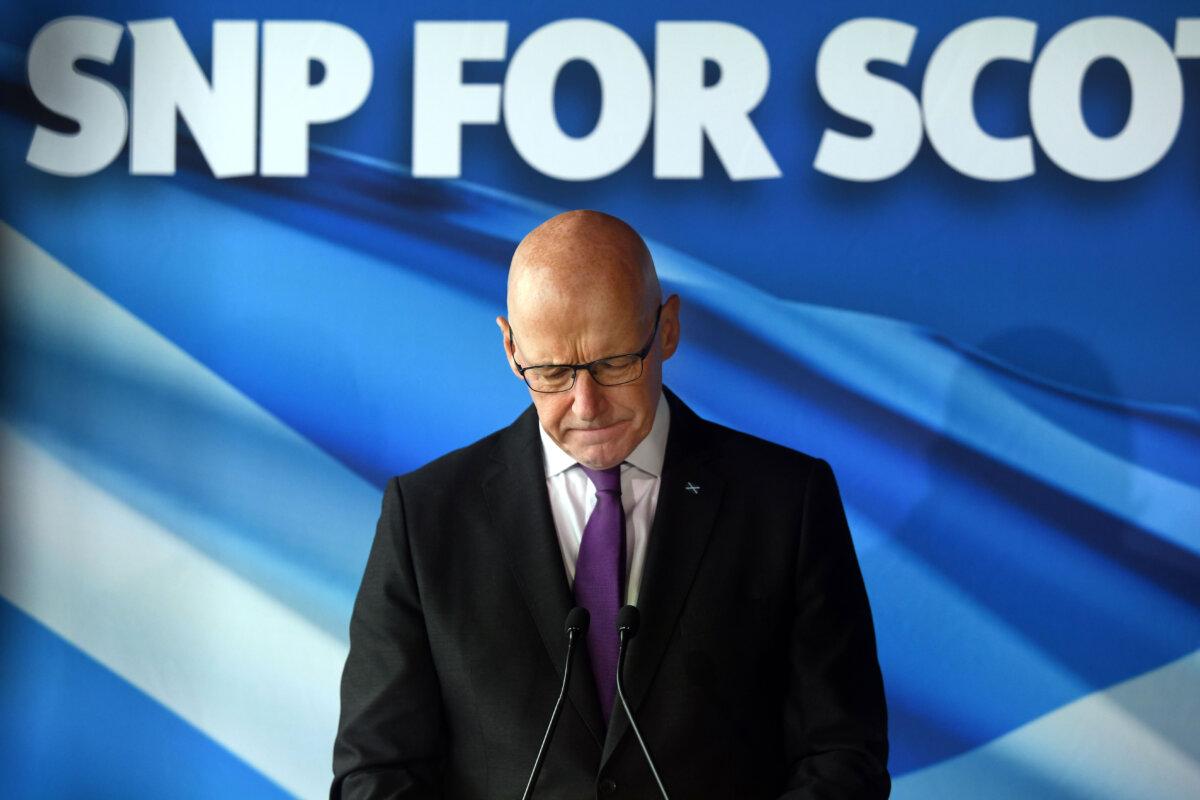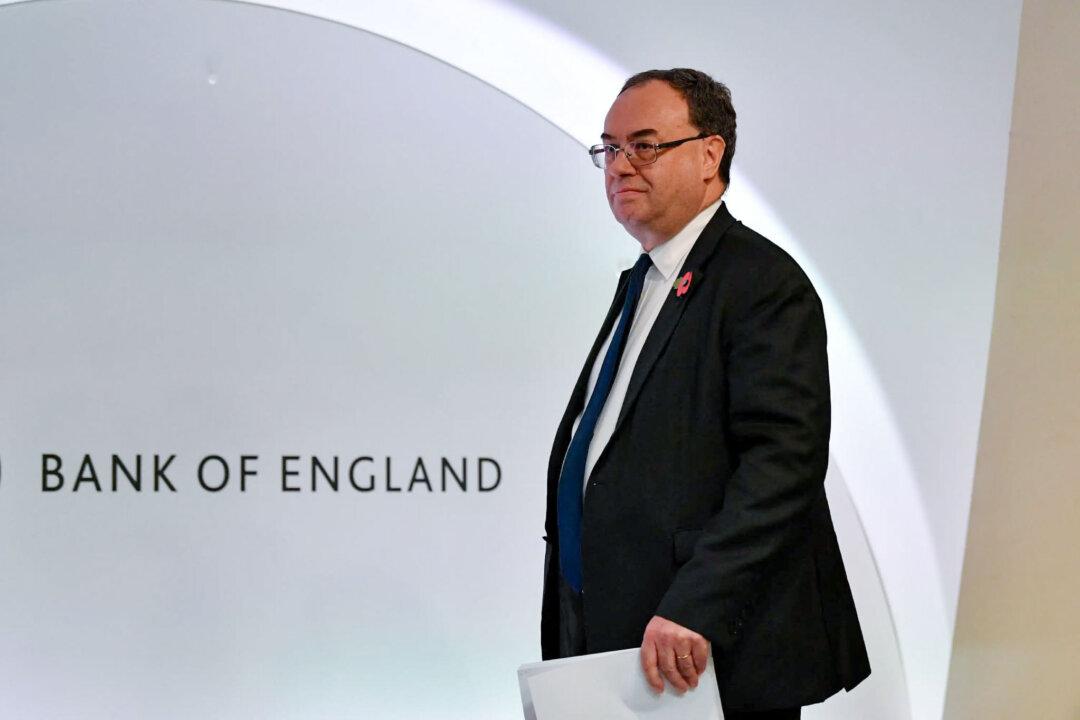With parliamentary elections in Scotland and Wales just a year away, Reform UK’s rise is fuelling speculation that the party could make serious inroads into devolved politics.
Last month, Swinney chaired a summit aimed at tackling the rise of the far right, which he said included Reform. While Labour and other parties attended, the Conservatives declined to take part.
Reform, which was not invited, accused Swinney of being a “democracy denier” and claimed he was afraid of the party’s growing popularity.
Labour currently leads the Welsh Parliament, while the Scottish National Party (SNP) heads the government in Holyrood. While Reform is not currently represented in either chamber, its potential influence in Scotland and Wales is growing, fuelled by frustration with established parties.
Sophie Stowers, research manager at the think tank More in Common, told The Epoch Times that Wales may offer the most fertile ground for Reform’s growth.
She suggested that many of the areas where Reform gained support in English local elections mirror the kinds of constituencies in Wales where Labour has traditionally dominated.
“I think Wales certainly holds potential. The Conservatives performed well there in 2019, and the voter coalition they assembled is quite similar to what Reform has been building over the past few years. Even in this year’s local elections, where Labour had fewer seats up for reelection, Reform managed to make a significant dent in their vote share,” she said.
Voting Intention
Polling suggests that Reform is gaining ground in Wales and now polling at 24 percent, a sharp rise from the 2 percent recorded by the Brexit Party in 2019. This puts Reform neck-and-neck with Plaid Cymru and ahead of the Conservatives, who have dropped to 15 percent.If these numbers hold, Reform could become the joint-second largest party in the Senedd.
The party’s strongest support comes from older voters and those without university degrees. Reform is also attracting voters from across the political spectrum, pulling support from 22 percent of 2024 Conservative voters and 9 percent of Labour’s. Reform is especially popular among Leave voters, while Labour and Plaid Cymru are splitting most of the Remain vote.
In Scotland, Reform’s prospects are less certain, but recent polling suggests growing support.

Stowers said that while Scotland may prove a more complex challenge for Reform, the party’s image has become less off-putting to Scottish voters than its predecessors—UKIP and the Brexit Party—were.
Party on the Rise or a Flash in the Pan?
Breaking into Holyrood and the Senedd is no easy task. What may prove decisive is whether Reform’s policies in Scotland and Wales resonate with local voters.In Wales, its focus is on infrastructure investment, NHS reform, and tax cuts aimed at reviving struggling communities.
In Scotland, the party is advocating for a leaner, more accountable government, deregulation, and a clear rejection of independence.
Labour in both nations champions public investment and state-led solutions. The SNP and Plaid Cymru prioritise national identity and further devolution or independence. Reform, by contrast, is calling for smaller government, less bureaucracy, and a more centralised UK.
To counter the rise of Reform, the governing parties in both Scotland and Wales will have to do more than just messaging, according to Stowers.
In Wales, Labour may benefit from highlighting tangible policy successes at the devolved level, especially in contrast to controversial decisions made in Westminster, such as cuts to the winter fuel allowance.
“Welsh Labour could benefit from drawing a line in the sand between Labour in Senedd and Labour in Westminster,” said Stowers.

In Scotland, the challenge is greater. The SNP continues to recover from internal turmoil and its poor general election showing, but must now contend with both Reform’s rise on the right and the Liberal Democrats’ quiet resurgence on the left.
Concerns Among Scottish Parties
In Scotland, both the SNP and Scottish Conservatives are responding to Reform’s rise with concern, though for different reasons.Swinney has characterised Reform as a threat to Scottish values, while Scottish Conservative leader Russell Findlay questioned Reform’s commitment to the Union. Swinney blamed both Labour and the Conservatives for, in his words, “cosying up to Farage” and now facing the consequences in local government.
Findlay said he “doesn’t understand the appeal” of Farage and warned Reform could hand more seats to the SNP, strengthening the independence movement.
But Reform argues that both major parties are panicking because they can no longer control the political narrative.
Understanding the Devolved Systems
Reform’s hopes in Wales come at a time of big changes to how the Senedd is elected.In 2026, the number of Senedd members will rise from 60 to 96, and a new voting system will be used. Instead of voters picking one local representative and a party for the regional list, all members will be chosen using proportional representation from 16 larger areas, each electing six people.
This means the number of seats each party gets will match more closely the number of votes they receive. As a result, every vote will carry more weight, and the final result should better reflect the choices of voters across Wales.
This new system could help smaller or newer parties like Reform. Even if they don’t win local races, they could still gain seats if enough people across Wales support them.
Scotland uses a similar system, with a mix of local constituency votes and regional party lists, but unlike Wales, it is not switching to a fully proportional model.
While devolved elections don’t decide who runs the UK government, they do shape the national debate and build momentum. If Reform performs well in Wales, it could boost their visibility and influence across the UK.







